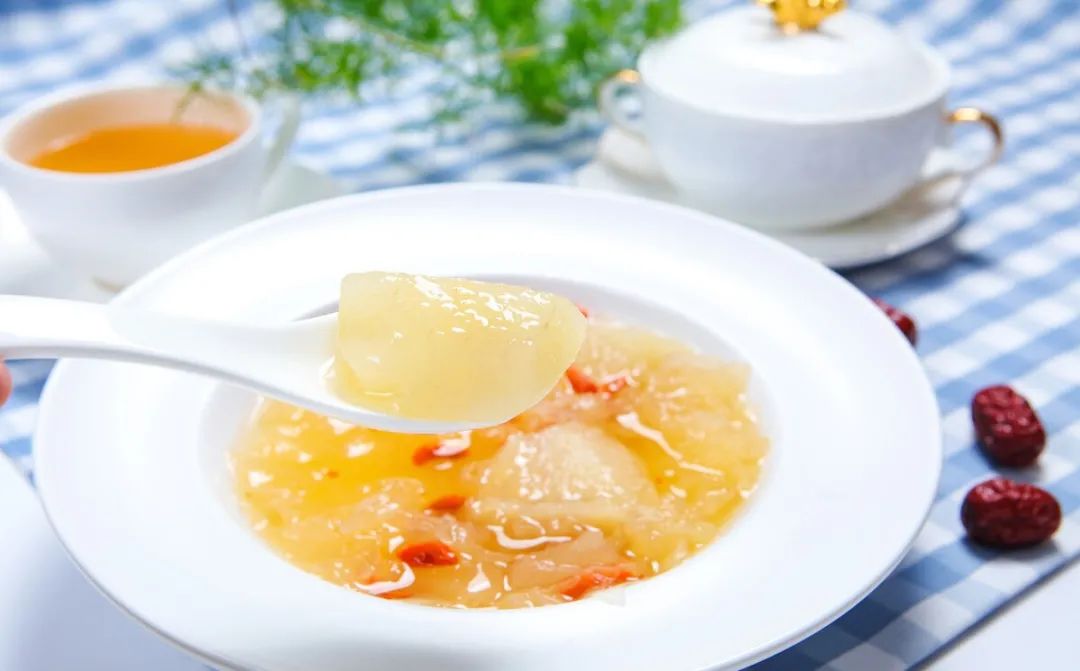Traditional Chinese Medicine (TCM) expert shares health knowledge with you.
Click below to follow for free↓↓↓
Yin deficiency is a pathological phenomenon characterized by the deficiency of essence, blood, or body fluids. A person with a Yin deficiency constitution can be metaphorically described as lacking moisture. With insufficient Yin, body fluids and blood are depleted, leading to pathological changes due to a lack of nourishment; when Yin cannot control Yang, there may also be relative hyperactivity of Yang.
What Causes Yin Deficiency Constitution?
Both congenital and acquired factors influence the formation of Yin deficiency constitution. Congenital factors include premature birth, late pregnancy, insufficient Qi and blood from parents, or hereditary influences. Acquired factors include environmental impacts, sudden febrile diseases that consume a large amount of Yin fluids; significant work or life stress, poor personal habits, irregular sleep patterns, overwork leading to Yin depletion; a diet that is overly spicy and stimulating, excessive indulgence, and a history of bleeding disorders, as well as menopause in women, which can lead to significant loss of Yin fluids.

What Symptoms Are Associated with Yin Deficiency Constitution?
Thin physique: When Yin cannot control Yang, Yang becomes relatively hyperactive, leading to internal heat. The body consumes more energy due to heat, resulting in poor nutrient absorption, which manifests as a thin physique. However, not all thin individuals have a Yin deficiency constitution; a comprehensive analysis of the following characteristics is necessary.Impatience and irritability: Yin deficiency leads to internal heat, and insufficient Yin blood cannot meet the body’s normal needs. The relative hyperactivity of Yang manifests as physiological dysfunction, with many experiencing body heat, impatience, lack of patience, palpitations, and anxiety, creating a false state of hyperactivity. If this state persists without relief, the body will eventually become weak and fatigued.Five hearts heat: Heat in the palms and soles, abnormal irritability, flushed complexion, dizziness, and tinnitus, particularly noticeable in the afternoon; a preference for cold foods, which can easily lead to internal heat, all due to insufficient Yin fluids and the relative excess of Yang.Dryness of the ears, eyes, mouth, nose, and skin: When the body’s fluids are deficient, there is insufficient moisture, leading to noticeable skin dryness and malnutrition, which can manifest as dryness in the mouth, nose, lips, tongue, throat, skin, and stool, thirst, reduced and yellow urine, red tongue, and thin, rapid, and weak pulse.

How to Differentiate and Regulate Yin Deficiency Constitution?
Wind-phlegm injuring Yin: Wind-phlegm disturbs and gradually injures Yin. Patients with this condition often experience dizziness, a heavy head, shoulder stiffness or discomfort, thirst, and weight loss. In severe cases, there may be signs of a stroke. The patient’s tongue is pale red, with cracks, and the tongue coating is relatively dry. Such individuals should consume cooling and moistening foods that nourish the Yin of the liver and kidneys, such as animal organs, pork, walnuts, goji berries, and sesame.Liver and kidney Yin deficiency: With Yin fluids depleted, Yin deficiency leads to heat, causing internal disturbance. Patients may present with dizziness, dry eyes, dry mouth and throat, tinnitus, five hearts heat, insomnia with vivid dreams, numbness in limbs, easy fatigue, flank pain, thin physique, and soreness in the lower back and knees, with a red tongue and little coating. Such individuals should drink more water, maintain a balanced diet, and can consume meat, eggs, dairy, yam, shiitake mushrooms, grapes, mulberries, black beans, rabbit meat, and duck meat.Yin deficiency with excess heat: Insufficient Yin leads to hyperactive Yang, generating heat that injures Yin fluids, possibly accompanied by palpitations, irritability, insomnia, dizziness, flushed cheeks, dry mouth and throat, short and red urine, and constipation, with a red tongue and thin coating. Such individuals should eat more foods that nourish Yin and reduce heat, such as kelp, seaweed, spinach, pig’s blood, brown sugar, pumpkin, and white fungus.Both Qi and Yin deficiency of the lungs: Heat in the Qi level, sweating that does not penetrate, injuring Qi and Yin. This condition is often seen in the later stages of warm diseases and mixed internal injuries, with true Yin depletion and significant Qi injury, possibly accompanied by spontaneous sweating, night sweats, fatigue, mental lethargy, dry mouth and throat, pale complexion, and poor appetite. The tongue is pale red, smooth, and without coating. Such individuals can consume foods that tonify Qi and generate fluids, such as millet, various grains, and bean products, as well as meat, eggs, dairy, and fish. In the autumn dry season, they can eat foods that clear heat, generate fluids, and moisten the lungs, such as sesame, walnuts, lily, Chinese yam, black fungus, pears, red dates, lotus seeds, and sugarcane.Stomach Yin deficiency: Patients with this condition often have a sallow complexion, dry mouth, irritability, and a dull burning pain in the stomach, with dry stools, a bright red tongue, and unevenly distributed, partially peeled tongue coating resembling a map, and a relatively thin tongue body. Such individuals should consume more foods that moisten dryness, generate fluids, and clear and tonify, such as pears, lilies, and black fungus. Those with insufficient stomach acid can eat a small amount of hawthorn or preserved plums after meals to aid digestion.Regardless of the type of Yin deficiency constitution, patients should avoid or minimize spicy and stimulating foods, warm and dry foods, abstain from smoking and alcohol, manage emotions, maintain a calm mindset, arrange a reasonable schedule, balance work and rest, and avoid infections.

What Dietary Recommendations Are Suitable for Individuals with Yin Deficiency Constitution?
White fungus, lily, and snow pear soup: Nourishes the kidneys, moistens the lungs, generates fluids, clears heat, and nourishes the stomach.Rock candy, ginseng, and lotus seed soup: Nourishes Yin, tonifies blood, benefits the kidneys, and strengthens the spleen.Chrysanthemum, goji berry, and mulberry tea: Nourishes Yin, benefits the liver, and strengthens the body.Yuzhu and huangjing stewed old duck: Nourishes Yin, moistens the lungs, nourishes the stomach, generates fluids, benefits the body, and transforms phlegm.
Note: Some text and image resources in this article are sourced from the internet. The purpose of reposting this article is to convey more information. If there are any errors in source attribution or infringement of your legal rights, please notify us immediately, and we will delete it promptly and apologize.
Previous highlights:
The renowned eight major kidney Yin and Yang tonifying proprietary medicines.
Ten special proprietary medicines for nourishing Yin.
Top ten ancestral proprietary medicines for both Yin and Yang deficiency included in the pharmacopoeia.
Director Zhao shares health and wellness knowledge.
Click below to follow for free↓↓↓
Editor shares great articles with friends.
1. So precious! Over 800 folk remedies, no illness that cannot be treated, save for future reference!
2. If you experience any of the four situations after long-term use of atorvastatin and aspirin, stop taking them immediately; do not take chances.
3. Nine effective remedies for insomnia, the best medicine for sleep disorders.
Like is a form of encouragement Share to spread joy.

